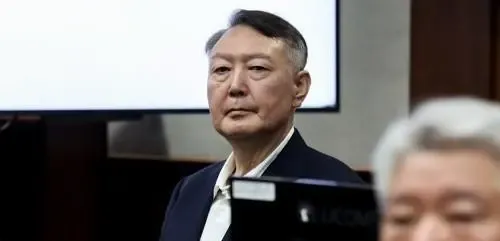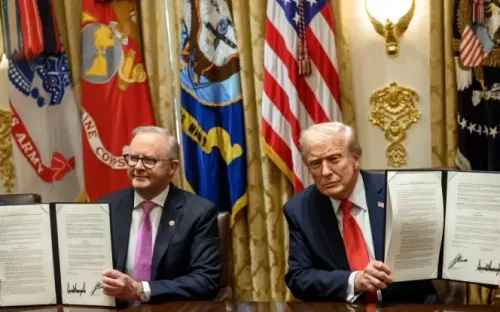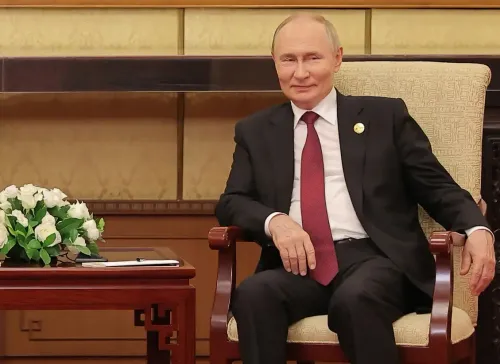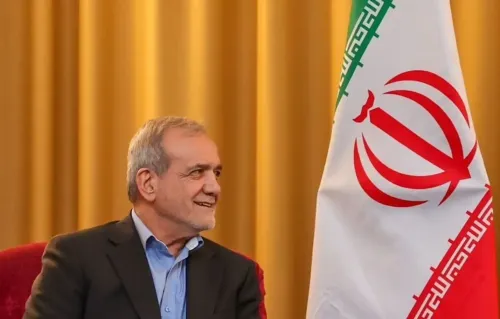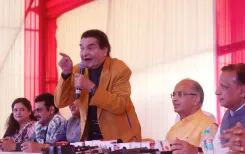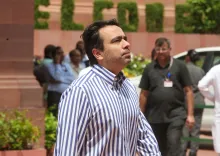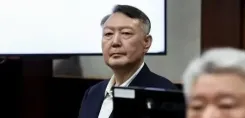How Are India and Namibia Strengthening Their Partnership in Key Sectors?

Synopsis
Key Takeaways
- Strengthening bilateral relations through partnership in key sectors.
- Focus on critical minerals as part of India's National Mineral Mission.
- Enhanced defence collaboration with potential credit offerings.
- Historical ties rooted in mutual support and values.
- Trade opportunities in mineral resources, particularly uranium and rare earths.
Windhoek, July 9 (NationPress) Prime Minister Narendra Modi and Namibian President Netumbo Nandi-Ndaitwah engaged in comprehensive discussions regarding the breadth of India-Namibia bilateral relations on Wednesday. Their talks, held in Windhoek, encompassed collaboration in crucial sectors such as digital technology, defence, security, agriculture, healthcare, education, and critical minerals.
During the meeting, Prime Minister Modi expressed his appreciation to the Namibian leader for extending condolences and support after the Pahalgam terror attack on April 22. He also acknowledged the Namibian government's sympathy regarding last month’s tragic Ahmedabad flight accident.
“Our enduring ties are built on mutual trust and shared values. We take pride in the fact that India played a significant role in advocating for Namibia’s independence. The principles of Mahatma Gandhi continue to inspire our nations,” PM Modi remarked during the delegation-level discussions.
India and Namibia have maintained a robust relationship for decades, with New Delhi recognizing Namibia prior to its independence and championing its cause in the UNGA back in 1946.
“In 1998, former PM Atal Bihari Vajpayee visited Namibia, and now I have the privilege of visiting your beautiful country. During your presidency, I am honored to be the first Indian PM to be a State Guest, and I thank you for that,” PM Modi stated.
The discussions on Wednesday aimed at fortifying India-Namibia ties across several key domains, including defence, digital technology, agriculture, health, education, critical minerals, and hydrocarbons. PM Modi expressed hope that “numerous new avenues” would emerge in their longstanding bilateral relations.
Trade between the two nations predominantly revolves around mineral resources, particularly zinc and diamond processing. Namibia is rich in resources, including uranium, copper, cobalt, and rare earth elements. Lithium, graphite, and tantalum are also of significant interest to India.
PM Modi announced that India has initiated the National Critical Mineral Mission and sees Namibia as a vital ally in this venture. He suggested that both nations could work towards establishing a Critical Mineral Partnership Agreement.
“We also explored opportunities to enhance trade, energy, and petrochemical linkages. I sincerely appreciate Namibia’s support for Project Cheetah,” PM Modi shared on X following the meeting.
He further emphasized the longstanding cooperation in the defence sector and the potential for further enhancement.
“India has developed a robust ecosystem for defence production. Our indigenous defence systems demonstrated their capabilities during the recent Operation Sindoor. We can offer a dedicated defence Line of Credit to Namibia,” PM Modi highlighted.
This marks Prime Minister Modi's inaugural visit to Namibia and the third visit by an Indian PM to the African nation in the last 27 years.
Upon arrival in Windhoek earlier in the day, he received a grand traditional welcome at Hosea Kutako International Airport, followed by an impressive ceremonial reception ahead of the official discussions.
PM Modi also conveyed his condolences on the passing of Namibia's founding father, Sam Nujoma, who held longstanding ties with India, noting that the vision he provided has greatly benefited the bilateral relations between the two nations.

